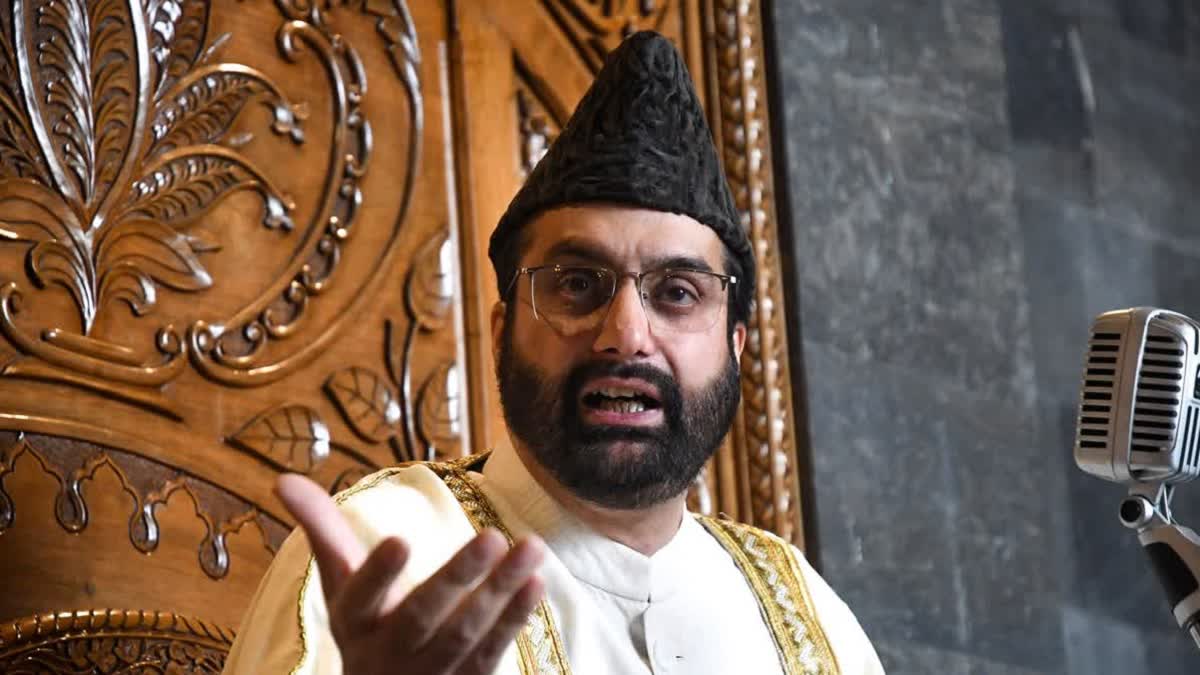Srinagar: Kashmir’s chief cleric and Chairman of the All Parties Hurriyat Conference, Mirwaiz Umar Farooq, on Friday urged the governments of India and Pakistan to address “the human aspect of the Kashmir conflict," particularly the issues of families divided due to partition.
Speaking after several days of detention, Umar paid tribute to his uncle Mirwaiz Moulvi Muhammad Ahmad Shah, who passed away in Pakistan recently. He described the late scholar as a distinguished religious leader and intellectual whose contributions left a lasting impact across Kashmir.
Addressing a large gathering at the Central Jamia Masjid in Srinagar before Friday prayers, Mirwaiz recalled Shah's influential work, particularly his broadcast of Qur’anic commentary on "Azad Kashmir Radio" in Kashmiri language. He noted that the initiative helped spread the message of the Holy Qur'an to countless homes across the region.
Mirwaiz lamented his inability to offer funeral prayers in absentia for his late uncle, a situation he said highlighted the ongoing issue of family separation. “We have repeatedly pointed out the suffering caused by partition and the long-standing pain it has inflicted on families in Kashmir,” he said.
He appealed to the governments of India and Pakistan to address the humanitarian aspect of the Kashmir problem, emphasising the need for a fair and lasting solution to end the agony of those separated by borders.
Reflecting on Moulvi Muhammad Ahmed's life, Mirwaiz shared that the late scholar was an eyewitness to Kashmir's decades-long history. He was only 17 when, following the migration of his father, he witnessed his family's forced separation.
Mirwaiz said that the tragic circumstances under which Shah spent his final years, far from his homeland, unable to return despite his desire. “The refusal of the Indian government to grant him permission to return, despite the conditions set by his father’s legacy, left him to live the life of a migrant,” he said.
Mirwaiz concluded by reiterating the urgent need for the resolution of the “Kashmir issue," underscoring that the human side of the conflict—the separation of families—should not be ignored.
Read More



